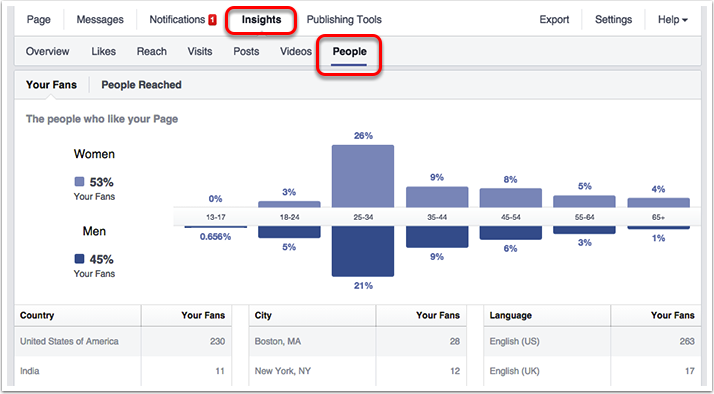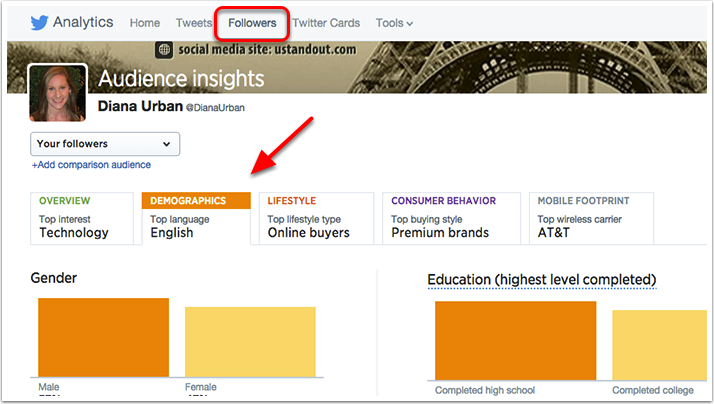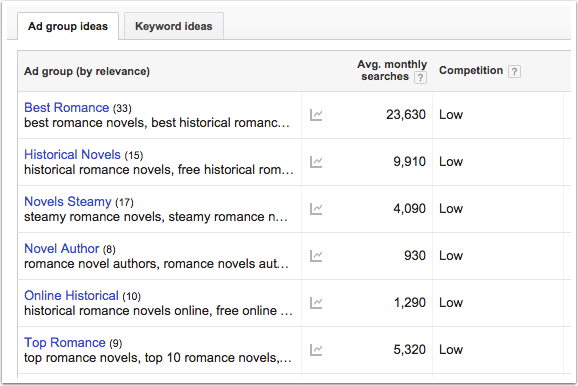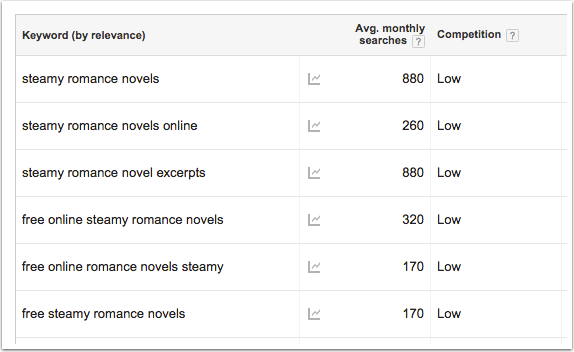While marketing a book, targeting too broad an audience is a common mistake many authors and book marketers make. In an age where many readers have access to virtually any book at any time, it’s incredibly difficult to make a single book stand out. Historically, bookstores have done targeted consumer marketing by shelving books in appropriate sections and stocking their stores with content that their particular customers have enjoyed in the past. Now that more and more readers are discovering new content on their own, it’s the author or publisher’s responsibility to make sure the right books get into the hands of the right readers.
Rather than trying to market every book to every potential reader out there, it’s in your best interest to focus your marketing efforts on a smaller group of “qualified leads,” or readers who have demonstrated interest in the type of book you’re trying to sell. This will ensure your marketing dollars are better spent and the readers you reach are more likely to purchase your books.
Simply assigning your book a sub-category on retailer sites is a start, but it isn’t enough. You need to know enough about your audience to know what kinds of books they’re searching for, and to cater your marketing copy — retailer descriptions, synopsis on your website, blog posts and interviews, tweets, etc. — to these search queries to be sure they find your book and choose it as their next read.
According to Mike Shatzkin, to ensure your book is discovered by users actively searching for books online:
The key knowledge required is not so much what’s in the book as what search terms the most likely customers will use to ask the question or express the desire for which the book is the right answer or fit. And in the world of digital information, Google is the primary intermediary, not the reviewer or bookstore buyer.
So how can you define the right audience for your book to enable smarter, more targeted marketing? How can you better understand what readers are actively searching for?
1. Information you should gather about your audience
Before you start marketing your book, you should have a clear understanding of the audience you’re trying to reach. Knowing your audience will help you create content and messaging that appeals to your readers specifically, and determine the channels on which you should spend your marketing budget and time. Here are some examples of questions you should be able to answer about your potential fans:
Demographics:
- What is their age, gender, and income level?
- What do they do for a living? Are they retired? Stay-at-home moms?
- What level of education did they complete?
- Are they married? Do they have children? If so, do they still live at home?
- Where do they live? (Region, urban vs. rural, etc.)
Psychographics:
- What are their favorite books (besides yours)?
- Who are their favorite authors (besides you)?
- What genres do they read most often? Are they loyal genre readers?
- How many books do they read per month?
- Do they read mainly for work or for pleasure?
- What kinds of movies and TV shows do they watch?
- How do they spend their free time, aside from reading? What are their hobbies?
- What kind of vacation do they like best? Or do they prefer to stay home?
- What are their buying habits? Do they make impulse purchases or hunt for great deals?
- How do they choose what book to buy next? Do they rely on recommendations from friends, are they loyal to particular authors, or do they grab the best deal they find?
Online behavior:
- What publications and blogs do they enjoy reading most?
- What social media sites do they spend most of their time on?
- Where do they shop most (online and offline) for books?
- Do they visit any forums? Google groups? Reddit?
2. Collect answers from your existing audience
Instead of guessing at the answers, consider posing these questions to your existing audience, or readers of books similar to yours. While this research takes time, the information you discover will be an invaluable resource for all your future book marketing efforts. There are a few ways you can get these answers from your existing audience:
1. Surveys. Create a survey using a tool like SurveyMonkey, SurveyPlanet, or KwikSurveys. As often as you can, especially for questions on demographics or genres read most, create multiple choice questions (dropdowns, radio buttons, or checkboxes) so you can easily compile the results. If all of your questions are free-response text fields, it will take you longer to read everyone’s responses individually. Then publish a blog post with a link to the survey and send the survey to your email list, encouraging them to participate and explaining why it’s worth their time to answer these questions. You can also join forces with any author friends in your genre who publish similar books to get as many responses as possible.
2. Reader interviews. Conduct a few interviews with readers over the phone or in person. Many people love talking about themselves, so you’ll have an easier time finding participants than you’d think. Prepare a list of questions ahead of time, but anticipate going off script too. Try to dig into the reader’s rationale when you want to understand more about how they find books to read or make purchasing decisions. This will help you get a more colorful picture of your readers than analyzing survey responses in excel.
3. Focus groups. A focus group is typically a collection of 5–10 people who are guided through a discussion by a moderator. As an author or book marketer, it’s easy to discover focus groups… find someone who’s part of a book club and ask to tag along to the next meeting! First, be a fly on the wall — listen to how people discuss and respond to a book similar to yours. Then have questions prepared for the group, just like you would during a reader interview.
4. Your social profiles. If you have a Facebook page or a Twitter profile with a substantial number of fans, you can review the insights tools on each platform to understand more about the demographics of the people paying attention to you online. On your Facebook page, navigate to Insights > People to see demographic breakdowns by gender, age, geography, and language.
On Twitter, navigate to your analytics page by clicking here and click Followers in the top navigation. Here you’ll find all sorts of interesting data about your followers, ranging from demographic data to lifestyle information and consumer behavior.
3. Create a reader persona as inspiration for marketing messaging
Now that you understand more about your audience, create a reader persona that describes your core customer. It doesn’t have to be anything complicated — just a short paragraph you can refer back to whenever you’re creating an ad, designing your cover, writing a tweet, or want a refresh on what might motivate your audience to pay attention.
Here’s an example reader persona (which is 100% fake):
Debbie is a 45–54 year old married woman living in the suburbs whose children still live at home, or recently moved out. She’s college educated and works full time, and she loves traveling and laying on the beach with a good book. She’s a loyal contemporary romance reader, and reads at least one book a week. Her favorite authors are Nora Roberts and Jude Deveraux, and her favorite movies are Titanic and The Notebook. When she’s not reading romance, she peruses People and US Weekly, and is subscribed to the blog Smart Bitches Trashy Books. She spends most of her time online on Facebook and dabbles with Pinterest. She also does most of her book shopping online, and while she’ll grab a good deal when she sees it, if she loves an author’s work or series or is tempted by what’s trending, she’ll buy a book at full price.
Once you understand your audience and what motivates them at this level, you’ll be able to better target your marketing and focus your efforts where your readers live, browse, and shop each day.
Also keep in mind that your book may have multiple target audiences. For example, there are many Young Adult thrillers with crossover potential to the Thrillers & Suspense market. You can create multiple personas and different marketing strategies for each persona to reach a wider audience.
4. Know what your audience is searching for
The next step is to compile a list of search queries that your target audience is using to search for books. There are a few ways you can find these terms:
Research which keywords are trending. Google Trends can help inform you of interest levels of particular terms. You can enter a generic keyword in your niche, such as “romance novel,” for example, and see the interest over time and also what related queries are most frequently used. From there you’ll get more ideas for trending terms, giving you more keywords to look up to see how they’re trending.
Do keyword research. Similarly, you can use Google’s Adwords tool to research keywords people are searching for. Once you enter a broad keyword, Google will give you keyword grouping suggestions and show you the search volume each keyword is receiving and competitiveness — how many other websites are targeting the same search term — of the words in that group.
Once you click into any of these groups, find keywords that are relevant to your book, have a good amount of average monthly searches, and have medium or low competition. These will be your sweet spots for keywords to focus on in your marketing copy.
Blog comments. Once you know which blogs and publications your audience frequents online, head over to those blogs and search for articles about books like yours. Scroll down to the comments to see how people are talking about these books, and if they’re expressing interest in other books they’d like to read that are similar to this book. This could also give you ideas for more terms to research using Google Trends or the Adwords Keywords tool.
Culled from Book Hub








